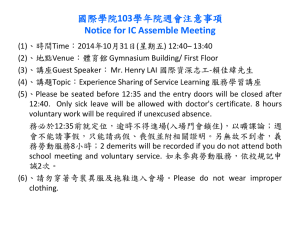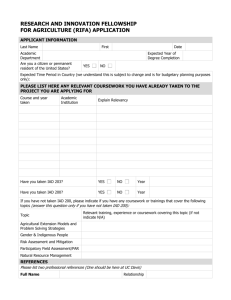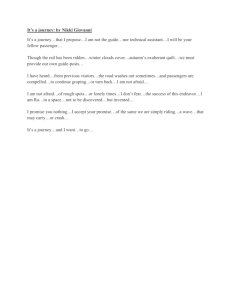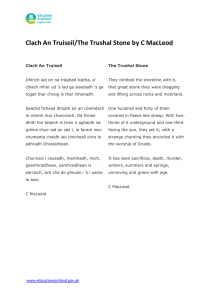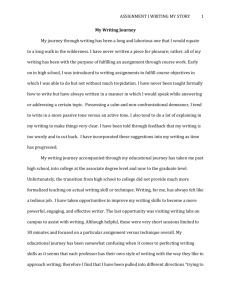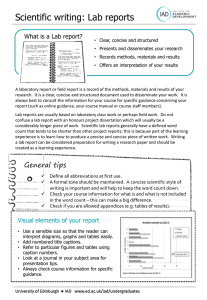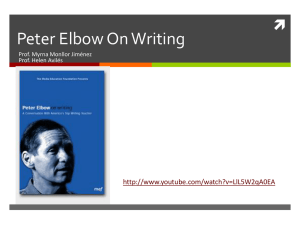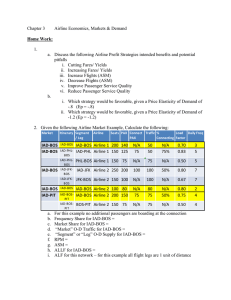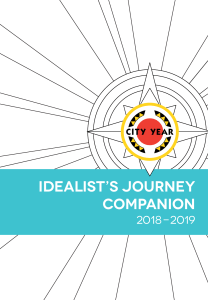Reflection: getting started
advertisement
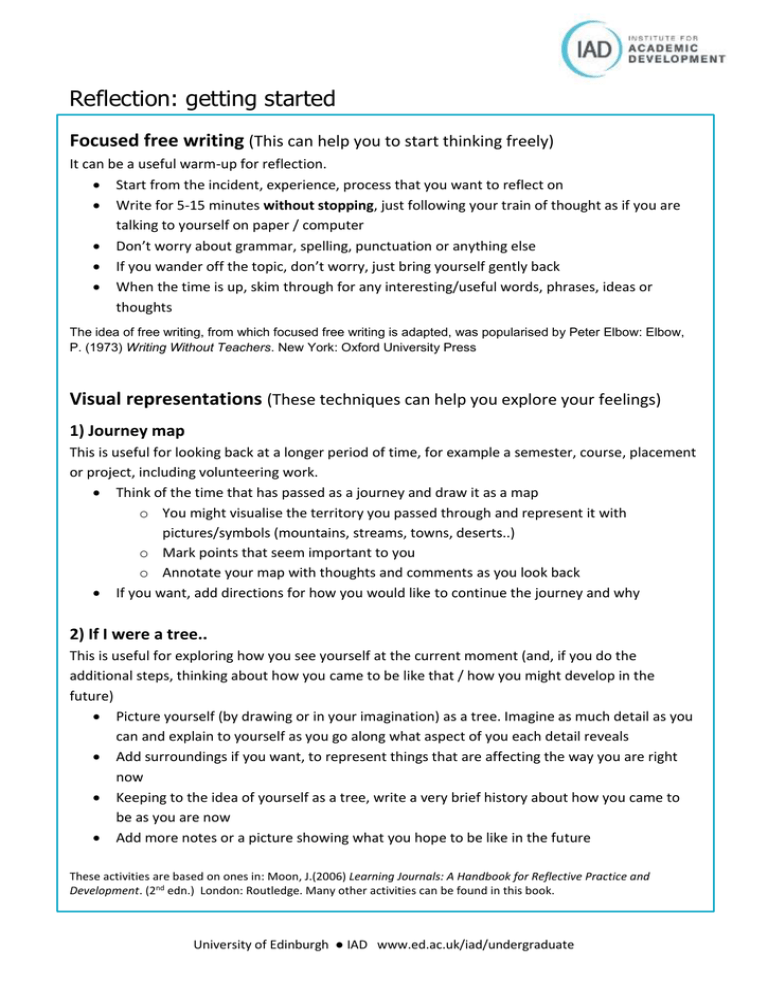
Reflection: getting started Focused free writing (This can help you to start thinking freely) It can be a useful warm-up for reflection. Start from the incident, experience, process that you want to reflect on Write for 5-15 minutes without stopping, just following your train of thought as if you are talking to yourself on paper / computer Don’t worry about grammar, spelling, punctuation or anything else If you wander off the topic, don’t worry, just bring yourself gently back When the time is up, skim through for any interesting/useful words, phrases, ideas or thoughts The idea of free writing, from which focused free writing is adapted, was popularised by Peter Elbow: Elbow, P. (1973) Writing Without Teachers. New York: Oxford University Press Visual representations (These techniques can help you explore your feelings) 1) Journey map This is useful for looking back at a longer period of time, for example a semester, course, placement or project, including volunteering work. Think of the time that has passed as a journey and draw it as a map o You might visualise the territory you passed through and represent it with pictures/symbols (mountains, streams, towns, deserts..) o Mark points that seem important to you o Annotate your map with thoughts and comments as you look back If you want, add directions for how you would like to continue the journey and why 2) If I were a tree.. This is useful for exploring how you see yourself at the current moment (and, if you do the additional steps, thinking about how you came to be like that / how you might develop in the future) Picture yourself (by drawing or in your imagination) as a tree. Imagine as much detail as you can and explain to yourself as you go along what aspect of you each detail reveals Add surroundings if you want, to represent things that are affecting the way you are right now Keeping to the idea of yourself as a tree, write a very brief history about how you came to be as you are now Add more notes or a picture showing what you hope to be like in the future These activities are based on ones in: Moon, J.(2006) Learning Journals: A Handbook for Reflective Practice and Development. (2nd edn.) London: Routledge. Many other activities can be found in this book. University of Edinburgh ● IAD www.ed.ac.uk/iad/undergraduate
